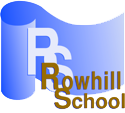Science and technology
Science BTEC
Contact Information: Mr Seane Mwale
All students in the Vocational hub study the Pearson BTEC Level 1 Award/Certificate in Applied Science. This qualification has been developed in the science sector to:
- Provide full-time learners aged 14-16 with an Applied Science qualification that covers the How Science Works criteria
- Provide full-time learners aged 14-16 with an Applied Science qualification that covers the Key Stage 4 Programme of Study for Science
- Provide full-time learners with an opportunity to gain an appropriate vocational qualification prior to entering employment in the science sector as a science technician or assistant practitioner
- Provide opportunities for learners to engage in learning which is relevant to them and will provide opportunities to develop a range of skills, techniques, personal skills and attributes essential for successful performance in working life
- Provide opportunities for learners to achieve a nationally recognised Level 1 vocationally specific qualification
- Enable full-time learners to progress to vocational qualifications such as the Pearson BTEC Level 2 Diploma in Applied Science (QCF) or progress to related general and/or other vocational qualifications
The course at Rowhill comprises of a number of units, usually two per academic year. These are taken from the following units;
- Unit 1: Starting Work in the Science Sector
- Unit 2: Using Equipment to Make Scientific Observations and Measurements
- Unit 3: Skills and Techniques for Chemistry Investigations
- Unit 4: The Study of Living Systems
- Unit 5: Physics and Our Universe
- Unit 6: Growing Plants for Commercial Use
- Unit 7: Causes of Disease and Maintaining Health
- Unit 8: Forensic Detection
- Unit 9: Healthier Living
- Unit 10: Making and Testing Cosmetic Products
- Unit 11: Practical Scientific Project
- Unit 12: Making Useful Scientific Devices
- Unit 13: Using Mathematical Tools in Science
- Unit 14: Science in the World
Assessment is through internally set externally moderated Centre-devised assessment. Each unit has specified learning outcomes and assessment criteria. To pass an internally assessed unit, learners must meet all the assessment criteria.
Learners will be able to present their work in a variety of ways, including:
Written reports, graphs, posters, practical demonstrations, verbal or online presentations.
Performance observation, projects, tests, and extended writing depending upon the nature of the assessment allowing learners to produce valid, sufficient and reliable evidence of meeting the assessment criteria.
